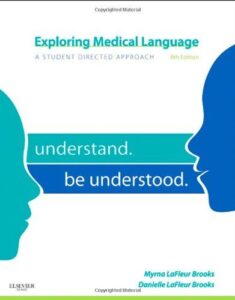Watch Your Language When You Preach
Watch Your Language When You Preach
In the last couple of posts we’ve looked at the Curse of Knowledge and how to overcome it. In this post we are going to consider one of the ways that you might become a victim of the curse of knowledge. You need to watch your language when you preach to your church.
The Language Gap When You Preach
I live in the United States. Because of our long history with Christianity, it is easy for me to assume that people

Communication problem, 3d illustration with cartoon character
understand what I am saying. That changed when I met Tom, a 63-year-old man. Tom came to our church after another stint in jail. He had gotten one too many DUI’s–Driving Under the Influence. Tom was an alcoholic, and after spending yet another time in jail for driving while drunk, he decided that his life needed to change. He didn’t quite know what that meant, but he felt that maybe religion was part of the answer.
The problem was that Tom really didn’t have any church background. He had been to church a few times, but the last time he had attended was when he was 17 years old. So, he was pretty ignorant of what happens in church. He chose our church because one of the counselors he was assigned in prison attended our church.
After he had attended a couple of times, he made an appointment with me. It was my privilege to study the Bible with him for several weeks, and as part of our time, we studied church language. You see, when I preached, I used words that Tom didn’t understand. I learned in those times that you need to watch your language when you preach to a group of people, because they might not understand the words that you are using.
Assume Ignorance
In 2017 Lifeway Research did a study in the United States about how much of the Bible people are familiar with. Their results were discouraging for me as a preacher. They found that 53% of the population had read none or very little of the Bible. This pie chart shows their results:

That’s in the United States, where Bibles are readily available in a variety of translations, and with churches readily available in most cities, villages and towns. Think about it: what is the percentage where you are of people who are totally ignorant of the Bible?
This means that when I preach, I need to assume that people don’t know even the basic concepts about the Bible and faith. You need to watch your language when you preach to your congregation!
We’re Not The Only Ones
 My wife is a nurse, and I am so glad about that. You see, a couple of years ago when I went to a surgeon to explore replacing my shoulder joint, I was lost. I found that I it helped when I took some notes of what he said, and then came home to have her give me some definitions. The medical field has many people who use language that is unique to it, and people fall under the curse of knowledge.
My wife is a nurse, and I am so glad about that. You see, a couple of years ago when I went to a surgeon to explore replacing my shoulder joint, I was lost. I found that I it helped when I took some notes of what he said, and then came home to have her give me some definitions. The medical field has many people who use language that is unique to it, and people fall under the curse of knowledge.
The same is true in the sciences, in trades, in education, etc. Everyone should learn to watch their language when they deal with people not immersed in their area of expertise. But for preachers, it is even more important. You see, we hold the truth that opens the door to eternal life. We don’t want people to be impressed with our knowledge. We want people to understand God’s love for us and what he did on the cross. So, watch your language when you preach to your church.
What Language to Watch When You Preach
 First of all, any theological word that you use should be defined. Any word! I found that Tom didn’t really even have an understanding of something as simple as “sin”. So, I began defining it when I preached. One of the most prominent words that is translated as “sin” is a metaphor of missing the mark. So, I began defining sin as a target that we shoot at, but we miss. God has a target of perfect holiness, and any time we miss that mark, it is sin.
First of all, any theological word that you use should be defined. Any word! I found that Tom didn’t really even have an understanding of something as simple as “sin”. So, I began defining it when I preached. One of the most prominent words that is translated as “sin” is a metaphor of missing the mark. So, I began defining sin as a target that we shoot at, but we miss. God has a target of perfect holiness, and any time we miss that mark, it is sin.
Think of some of the other words that we so often assume are known by our hearers. At Christmas I am likely to talk about the “incarnation”, the reality that Jesus came from the world of spirit to come “in flesh”.
Even something as simple as calling other Christians “brother” and “sister” can be misunderstood. In the early church the Christians were accused of practicing incest, because they married their brothers and sisters.
So, watch your language when you preach! I’ve referred often to Brandon Hilgemann’s book, Preach and Deliver. He gives a list of some words and phrases to watch for in your sermons: Fellowship, Quiet Time , Small Group, Washed by the Blood, Anointed, Hallelujah, Tithe, Communion/The Lord’s Supper are among them. Listen for words like these. It’s okay to use them, but always define them.



